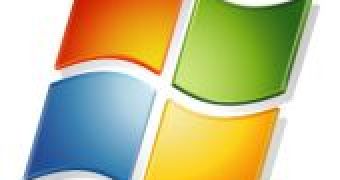A Windows PC on every desk and in every house is a motto dwarfed by the new mantra that Microsoft Chief Executive Officer Steve Ballmer revealed at the 2011 International Consumer Electronics Show in Las Vegas on January 5th, 2011. How does a copy of Windows on every device sound instead? One Softpedia reader commented after the sneak peek of Windows vNext offered by the Redmond company: “I really wonder what is so amazing about Windows for SoCs that it is construed as 'Windows 8 mini unveiling' and that it should sweep us off our feet?”
Well, nothing really. And everything. At CES 2011, as expected, the software giant revealed that the next major iteration of Windows will play nice with System on a Chip (SoC) architectures, with the focus on ARM-based systems.
What this means is that Windows will be ported to more and more form factors. Today’s consumers are used to see Windows on netbooks, laptops, desktop PCs, Apple Mac machines, etc.
They will soon be able to see it run on a range of Tablet PCs / slates, whether they’ll like the idea, or not, as well as on Microsoft Surface 2.0.
But there are additional devices out there, that in just a few years will be perfectly capable of running Windows. How about smartphones? Wouldn’t you like to be able to run Windows vNext on your mobile phone?
I would. And it seems that this is the direction in which Microsoft is heading.
“This is an exciting time for our industry and for consumers. We have the opportunity through the magic of software to bring Windows forward, to redefine what is really possible. That's the power of this announcement today. Whatever device you use, now or in the future, Windows will be there,” Ballmer said toward the end of his CES 2011 keynote. (emphasis added)
Windows, on whatever device you will use… One revolutionary thing, at least for Microsoft, related to Windows 7, is that it was the first OS from the software giant to use fewer resources.
What if MinWin was just the first step? What if Windows vNext will be sufficiently componentized to permit its tailoring to form factors out of the reach of Windows 7 or any of its predecessors?
“Today's Windows 7 PCs can be found in so many wonderful form factors, from new tablets and convertibles to high-end gaming rigs. And Windows PCs will continue to adapt and evolve,” Ballmer added.
“Support for system-on-a-chip means that Windows will be everywhere on every kind of device without compromise; all the performance and flexibility of Windows on low-power, long-lasting devices.
“We're entering a new era of technology for consumers where you'll be able to use Windows anywhere you go, from the small screen to the big screen. It has the gaming, the TV, the movies, the music, the productivity, the social networking, that today's consumers are seeking.”

 14 DAY TRIAL //
14 DAY TRIAL //